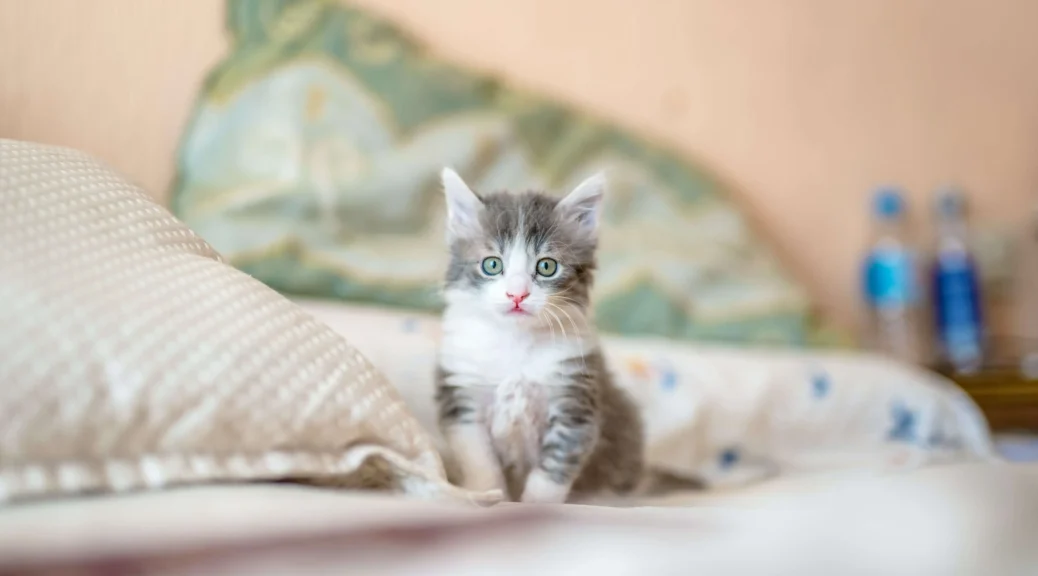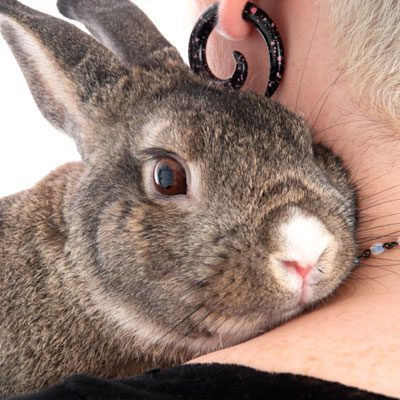Are you frequently overcome with warmth at the sight of an incredibly cute kitten snapshot? Cats exhibit undeniable charm throughout their lives, but they reach peak cuteness—along with heaps of fun—during their kittenhood. What exactly makes kittens so enchanting? What is the irresistible allure of these fluffy bundles that captivates us? Dive into this article as a Dayton, TN veterinarian shares delightful insights into the world of adorable Fluffy.
Meow-sic to Your Ears
It’s common knowledge that cats purr, isn’t it? This behavior likely originated as a means of communication between mother and kitten. While nursing, little Fluffy can’t meow. The purring likely began as a way for both mother and kitten to reassure each other of their safety, comfort, happiness, and love.
Kneading Cuteness
Our charming feline friends display numerous delightful behaviors. One such behavior, known as kneading or “making biscuits,” though occasionally painful, is a sign of affection. This behavior traces back to kittenhood when kneading stimulated milk flow during nursing. Hence, when your adult cat kneads, it signifies a deep bond, recognizing you as a caregiver.
Blue Eyes are a Trait of Newborn Kittens
Every kitten enters the world with blue eyes. Little Fluffy takes around a week to unveil her peepers post-birth. Upon opening, a gradual shift in eye color may start. Around the age of one, your feline friend’s eyes settle into their permanent hue. Yet, pigment transformation might persist for another year. Notably, certain breeds like the Siamese retain their striking blue gaze.
Blindness at Birth
Newborn kittens are vulnerable due to being born blind and deaf. Even after their eyes open, it takes roughly a month for their vision to fully develop.
Claw-ver Consideration
Ever been scratched after a kitten’s zoomies? Whether Fluffy was climbing you like a tree or using you as a springboard, it likely made you wince. Those little claws can certainly pack a punch! Did you know that a kitten’s claws tend to be sharper than those of adult cats, simply because the claws are much smaller? It typically takes about four weeks for your tiny panther to learn how to retract her claws, so thankfully this shouldn’t be something to worry about long-term.
Feline Aging Sometimes Doesn’t Follow the Norm
It’s worth noting that cat breeds age at varying rates. Take the Maine Coon, for instance; it typically takes until around three or four years old to reach full maturity. Furthermore, some cats seem to preserve their youthful exuberance throughout their lives, but that’s a story for another occasion.
Their Charms Have Enchanted Us Across the Ages
Around 10 to 12,000 years ago, humans and cats initiated their companionship, a bond that emerged during the advent of agriculture in the fertile crescent, as indicated by research. Cats had already embedded themselves in our lives by the pinnacle of ancient Egypt’s civilization. Egyptians esteemed cats, regarding them as sacred beings, and revered the cat goddess Bast, often depicted surrounded by playful kittens. Envision our ancestors from that era, utterly captivated by these endearing creatures!
Their Adventures Inspired Numerous Folk Tales
Felines are prominent figures in myths and legends across the globe. Among the notable tales involving kittens is the narrative of the pussy willow. Legend has it that kittens were carried away by a river’s current. Hearing their plaintive cries, a nearby tree lowered its branches to aid the stranded kittens. As a tribute to their bond, the tree now produces buds adorned with soft down, reminiscent of its feline ally’s presence. This enduring story celebrates the connection between nature and our feline companions.
Can Cats Have Different Fathers in One Litter?
According to a Dayton, TN veterinarian, among cats, it’s relatively rare but possible for litters to have different fathers. This results in kittens who are only half-siblings genetically. Such occurrences offer an interesting glimpse into feline reproduction.
They Lack the Ability to Generate Heat
Until they reach approximately five weeks of age, kittens lack the capacity to regulate their body temperature independently. Throughout their initial month, they depend on their mother and littermates for warmth, rendering them highly susceptible to cold temperatures.
Even as they age, many cats retain the instinct to find cozy napping spots. Fluffy, for instance, adores lounging in sun-drenched patches and snuggling into warm laundry baskets. This behavior persists throughout their lives, providing them with comfort and relaxation.
What Makes Them Adorable?
Describing kittens in one word often leads to terms like cute, adorable, or charming. But why do we find them so endearing? Their large eyes relative to their heads may play a role. Interestingly, Fluffy’s eyes won’t grow, unlike the rest of her head. This feature adds to their irresistible appeal and contributes to our affection for them.
Little Fluffy’s playful antics and adorable vocalizations, on the other hand, have a knack for melting hearts.
Clowder Versus Kindle?
Were you aware that a gathering of cats is officially referred to as a clowder? Similarly, a group of kittens has an official designation: a kindle.
A Rare Gem
On occasion, a particular cat captivates our affections and rises to fame. In recent times, numerous celebrity cats, like Grumpy Cat and Colonel Meow, have gained popularity on the internet. One such feline sensation was Lil Bub, dubbed the perpetual kitten. Lil Bub’s uniqueness stemmed from a congenital condition: dwarfism prevented her teeth from developing. Despite growing older, she maintained an enduringly adorable kitten-like appearance.
An Altered Perspective
Cats possess distinctive perspectives on life. Interestingly, Fluffy perceives the world differently from us. Our feline companions boast superior depth perception and enhanced night vision. However, they lack the ability to see the full range of colors.
Literary Legacies
Evidence suggests that cats haven’t changed much over centuries, as medieval manuscripts bear their pawprints. Cats have long been depicted in literature across different eras. From Dinah in Alice in Wonderland to iconic figures like Hello Kitty and Nermal from Garfield, feline characters abound. Their presence in literature attests to the enduring fascination with these enigmatic creatures.
Are They Kittens or Cubs?
When you observe big cats, it’s fascinating to notice the similarities they share with our household feline companions. From their behaviors to their preferences, these majestic creatures often exhibit traits reminiscent of our beloved housecats, such as their peculiar fondness for boxes. However, amidst these similarities, there are also notable distinctions to consider. Unlike their smaller counterparts, the offspring of larger cats are typically referred to as cubs, reflecting the unique aspects of their lives and habitats.
What Is the Origin of the Word “Kitten”?
Curious why young cats are called kittens? The term stems from Middle English, “kitoun,” originating from French “chitoun” or “cheton,” signifying a young cat.
Are They Sensitive to Earthquakes? Perhaps.
Researchers suspect that cats possess sensitivity to the Earth’s magnetic fields and can detect tremors, although further research is necessary. It makes sense, considering the capability of kitty paw pads and whiskers to discern subtle changes, like wind direction, and detect impacts, such as footprints.
They Possess a Hint of Magic
Cat purrs have a soothing effect on us, did you know? They rumble at frequencies between 25 and 140 Hertz. These frequencies are known to promote tissue healing and are utilized in physical therapy as well. So, basically, cats are magic little healers.
Tiny Predators Abound
Naturally, cats are hunters. Despite preferring the comforts of domesticity, Fluffy retains her innate instincts. Kittens, especially, are keen on exploring their claws and teeth, though it can pose risks. Therefore, it’s crucial to maintain pet-proofing measures to ensure their safety. Cats’ inherent hunting nature persists even in the lap of luxury, reminding us of their wild ancestry.
Need guidance on kitten care? Reach out to us, South Rhea Animal Hospital in Dayton, TN, for assistance. We’re here to lend a helping hand!





